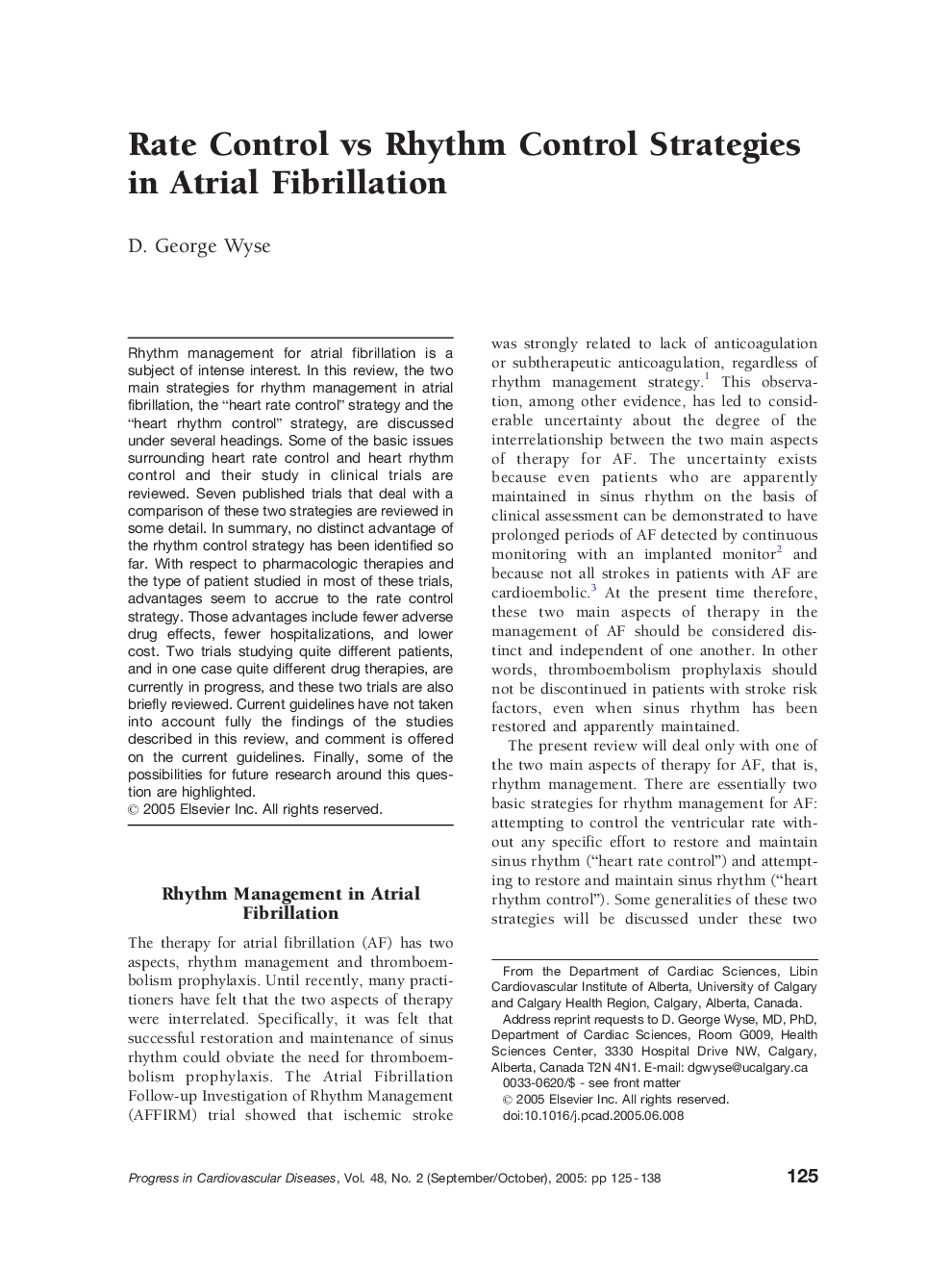| Article ID | Journal | Published Year | Pages | File Type |
|---|---|---|---|---|
| 9178970 | Progress in Cardiovascular Diseases | 2005 | 14 Pages |
Abstract
Rhythm management for atrial fibrillation is a subject of intense interest. In this review, the two main strategies for rhythm management in atrial fibrillation, the “heart rate control” strategy and the “heart rhythm control” strategy, are discussed under several headings. Some of the basic issues surrounding heart rate control and heart rhythm control and their study in clinical trials are reviewed. Seven published trials that deal with a comparison of these two strategies are reviewed in some detail. In summary, no distinct advantage of the rhythm control strategy has been identified so far. With respect to pharmacologic therapies and the type of patient studied in most of these trials, advantages seem to accrue to the rate control strategy. Those advantages include fewer adverse drug effects, fewer hospitalizations, and lower cost. Two trials studying quite different patients, and in one case quite different drug therapies, are currently in progress, and these two trials are also briefly reviewed. Current guidelines have not taken into account fully the findings of the studies described in this review, and comment is offered on the current guidelines. Finally, some of the possibilities for future research around this question are highlighted.
Related Topics
Health Sciences
Medicine and Dentistry
Cardiology and Cardiovascular Medicine
Authors
D. George Wyse,
